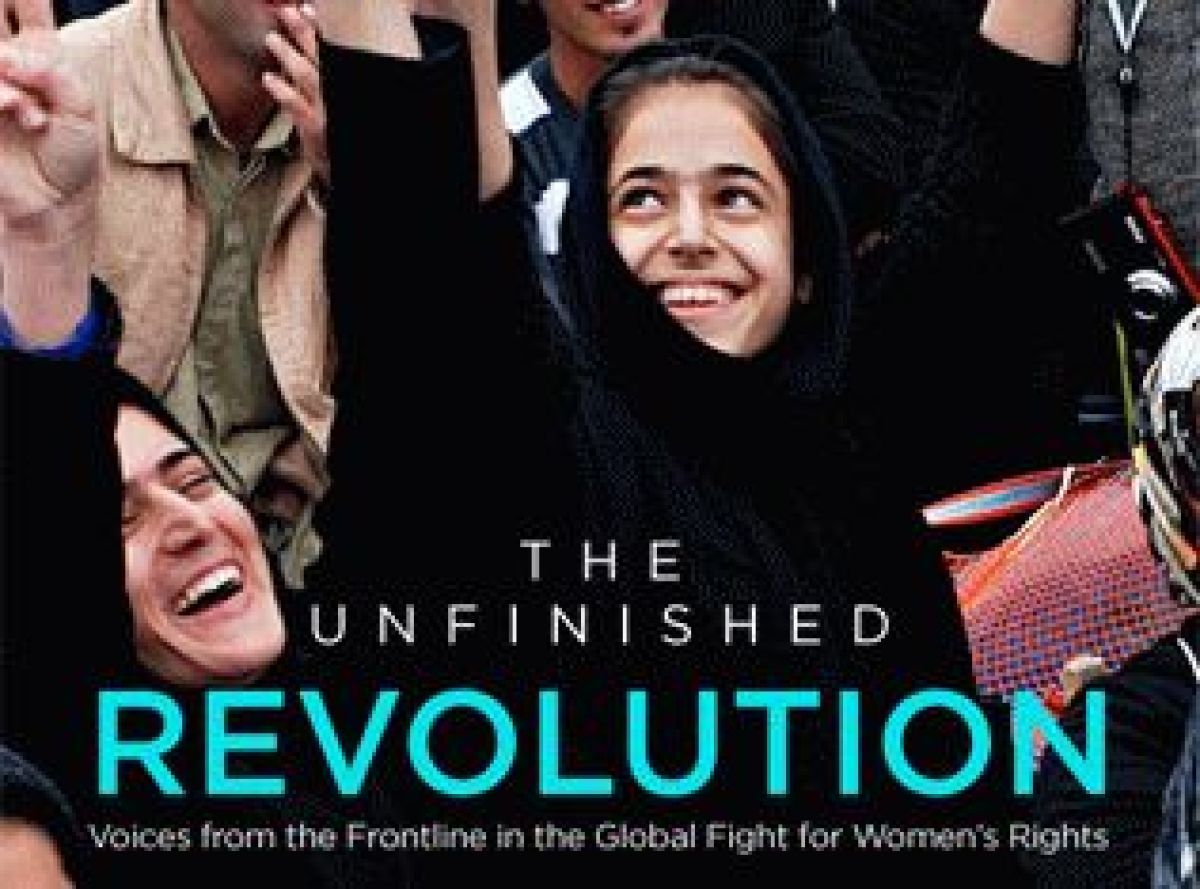
The aftermath of an Arab Spring was initially a time of joy for the role many women played during those days of revolution. However, from West to East, there is still much to be accomplished. The Unfinished Revolution speaks of an enduring global fight for Women’s rights.
[inset_right]
The Unfinished revolution – Voices from the Global Fight for Women’s Rights
Edited by Minky Worden
Foreword by Christiane Amanpour
Seven Stories Press, New York, 2012
Human Rights Watch
[/inset_right]
From the Human Rights Watch (HRW) book series, The Unfinished Revolution presents us with the views of a collection of women who deal with women's issues across the globe. They talk of their experiences through the opinions, ideas and stories of the struggle of women and young girls. Some of them are journalists – the foreword is by Correspondent Christianne Amanpour from ABC News - but most of them are current or former Human Rights workers, longtime activists and advocates committed to women’s causes.
“Women’s rights are human rights” became a powerful and recognized slogan. These are the words of Charlotte Bunch, an advocate and leader in United Nations (UN) conferences speaking up for women. This was a landmark in the fight for women’s rights, or a “revolution in thinking” as the book states. The book takes the reader through the entire concept of Human Rights, focusing on the role of Eleanor Roosevelt, who chaired the first UN Commission on the status of women and who was a key element in establishing the Universal Declaration of Human Rights.
Eleanor Roosevelt had a special role but she was part of a global movement that fought and still fights to make a better world for other women. The problems are still there, challenging the global society. From domestic violence in Europe to female genital mutilation (FGM) in Iraq, women continue to pursue equality and independence in the social, political and cultural arena.
"Arab Spring, a Women’s Winter?"
“Will the women who supported and participated in the 2011 revolutions be pushed aside by military, Islamists, or other leaders, or will they be allowed to take part in governing, in the judiciary, and in making autonomous decisions about their own lives?”
The book raises many questions about whether a revolution by itself is a guarantee of freedom. In the introduction, Minky Worden speaks about revolutions and rights. It should be an obvious part of the equation, but sometimes it is not that simple.
The second part of the book, Revolutions and Transitions, focuses on how some revolutions did not mean equal rights for man and women - from the Iranian revolution, to recent years in Iraq and the recent revolution in Egypt, as well as the ongoing struggle of Saudi Women.
“These revolutions alone will not be enough to secure rights for women and might even lead to the weakening of key rights protections.”
Violence against women is one of the main topics covered in the book. Across cultures, countries and continents, violence affects women and girls through its many forms. It may be rape used as a weapon of war in the Democratic Republic of Congo during armed conflict, or Female Genital mutilation (FGM) in Iraq and Egypt – a practice that provokes lasting physical and psychological wounds in girls as young as 6 years-old. A road map for rolling back the practice of FGM is described, focusing on Human Rights Watch's work with a religious fatwa to fight the practice in Iraqi Kurdistan.
Child marriage in Afghanistan affects ten million girls a year - as many as 100 million girls over the next decade if nothing is done to prevent it. The book shows us how a global coalition - the Elders a group of former heads of state and international rights advocates led by Graça Machel and Mary Robinson and founded by Nelson Mandela - is trying to eradicate this practice. The causes for this enduring practice are social and cultural. Poverty forces families to marry young girls early on, to settle their debts and to protect their honor, forcing them among other things, to give up the right to an education, which in turn compromises their future.
Marrying young can lead to a number of health problems, another issue covered in the book. Furthermore, violence affects women throughout the world and in different ways. Such as, women who are being denied contraception and abortion in Latin America or the ban of burkas and other forms of religious dress in some European countries. According to the author, this represents a clear violation of women’s rights to freedom from discrimination, religious expression and personal autonomy. “Yet many support this ban because they mistakenly believe that such garments always represent a type of forced veiling, even when it is voluntary.”
From East to West, domestic violence is still a serious issue in many European countries. In the western world, the way rape victims are treated in the United States is the big story. Because rape kits go untested and unused within the justice system, the victims’ suffering endures and those guilty are never brought to account for their crime.
The book covers other complex issues such as the trafficking of Asian women and the exploitation of domestic migrant workers. The problems are there and they are as many as diverse, but so are the challenges. As the editor says:
“No measure will be more important than whether the unfinished revolution for women’s rights in the region is permitted to take hold and flower.”






